This is an advanced conference is intended for professionals who work directly with individuals who have used violence toward an intimate partner and administrators of intervention programs.
Registrants for this training who provide direct AIP services should have met the 60 hours of training required by Maryland’s Guidelines for Abuse Intervention Programs, the minimum training requirements for their state certification if outside of Maryland or be an administrator of an intervention program certified in their state of operation.
Registrants who frequently work with AIP participants or programs in other capacities, such as the State’s Attorney’s Office and the Division of Parole & Probation, are welcomed to register and attend our conference.




9:00 am – 9:30 am
Welcome by The Maryland Network Against Domestic Violence Executive Director Jennifer Pollitt-Hill and Rebecca Allyn from Governor’s Office of Crime Prevention, Youth, and Victim Services.

Centering Survivors’ Perspective, presented by Lisa Young Larance PhD, MSW, LCSW
Centering survivors’ experiences and priorities is an essential foundational principle of accountable, effective BIP work as well as a fundamental component of reimagining systems’ responses to intimate partner violence. Thus, in order to address the question of this year’s conference, “How Can We Do Better?” we must begin with, and consistently incorporate, direction from those who have survived intimate harm. This session will provide early information from a community-based participatory research study designed to assess BIP effectiveness from the perspectives of women from diverse backgrounds whose abusive partners had BIP contact. The presentation will provide an opportunity to examine emerging findings and explore directions for further study.

11:00 am – 12:30 pm
Understanding and addressing women’s use of force in intimate relationships by Lisa Young Larance PhD, MSW, LCSW
Understanding and addressing women’s use of force in intimate relationships is a controversial national issue that affects first responders, criminal legal system personnel, and social service providers at the local, county, and state-wide levels. The inaccurate perception that all women who have used force are “batterers” often (mis)informs arrest procedures, judicial actions, and chosen interventions in many states. Through lack of attention to context, interventions fail to meet the needs of these women and may also fail to meet the goals of the referring agency – to prevent future violent incidents.

11:00 am – 12:30 pm
“Working with Latinx Participants,” presented by Emiliano Diaz de Leon
This workshop aims to provide participants with an understanding of the cultural dynamics that influence Latinx individuals who perpetrate domestic violence and practical strategies for working with this population.


11:00 am – 12:30 pm
‘Engaging Participants as Fathers & Experiences of Adults who Witnessed Violence as Children,” presented by Lisa Nitsch and Johnny Rice II, Dr. PH, MSCJ
Helping intervention program participants have a better understanding of the emotional, physical and behavioral impact of intimate partner violence on their children can be an effective engagement tool. Our own understanding of it can affect our ability to connect with program participants and help them stop the generational cycle of abuse. Intervention programs serve a preventative role when they help participants become healthier role models for their children. Hear one person’s experience of witnessing abuse as a child and his path toward repairing his relationship with this father and learn exercises to assist participants in assessing their own relationships with their children.

12:30 pm – 1:45 pm
“Intervention Programs Roles & Responsibilities within a Coordinated Community Response,” presented by Debby Tucker
Debby will discuss what is underneath the use of domestic violence, the ways we are coordinating in the nonprofit community with government and civil society to end it. She will share what to say when you are worried that someone is a victim or a person using violence. And she will discuss why domestic violence usually increases over the holidays.

2:00 pm – 3:30 pm
Enhancing the Effective Elements of Abuse Intervention presented by Chris Murphy, PhD
This presentation distills and summarizes evidence from risk prediction studies, controlled trial research, and qualitative studies of client and facilitator perspectives to identify several key elements of effective battering interventions. The presentation will provide examples of evidence-based, context-specific, and trauma-informed strategies to enhance the effectiveness of battering intervention, including strategies to reduce participant hostility, enhance motivation to change, promote effective group facilitation skills, and enhance participants’ emotional and self-regulation.

2:00 pm – 3:30 pm
“Woman Abuse: Intoxication Didn’t Cause It And Sobriety Won’t Cure It,” presented by David Garvin
Substance abuse and woman abuse are closely associated in the public’s mind, so much so that many people believe the use of substances is a direct cause of woman abuse. It is imperative to understand that substance use/abuse did not cause the domestic violence therefore substance abuse treatment can not solve the domestic violence. At the same time, we must understand how best to intervene with the abuser who has this dual problem of abusing women and alcohol and/or other drugs.

2:00 pm – 3:30 pm
“Promising Practices for Engaging Men,” presented by Emiliano Diaz de Leon
Research on engaging men in violence prevention calls attention to the promising practices of men nurturing healthy non-violent relationships with boys and men in their lives, participating in critical conversations around healthy versus toxic masculinity, and taking collective action to end gender-based violence. Emiliano will share unique challenges, inspiring successes, and lessons learned from utilizing these practices, as well as his experience of working with men in BIPs to end domestic violence. Additionally, participants will identify effective components of prevention programming, including post-BIP men’s discussion groups and allied action events/campaigns. The strategies and tools shared will help meet the needs of diverse groups of men, including fathers, men of color, gay, bi, queer, and trans men.


3:45 pm – 4:45 pm




9:00 am – 9:30 am
Welcome and Thank you
Reflections on Day 1 and How to connect with MAIC.




9:30 am – 10:45 am
Humanizing the “Other”; Humanizing Ourselves, presented by Juan Carlos Arean.
Description:
Building upon the ground-breaking 2017 roundtable on BIP’s current trends, alternative models, and promising practices, sponsored by the Office on Victims of Crime and the Office on Violence Against Women, Mr. Areán will speak of the need for BI practitioners to incorporate a trauma-informed lens, embrace cultural approaches, and engage in deep self-reflection. He will invite participants to ponder the meaning of healing in the context of responsibility, the overlap of victimization and perpetration, and the misuse of coercive systems in working with DV offenders.

11:00 am – 12:30 pm
“Working Collaboratively with Parole & Probation,” presented by Kathrine Parron
Better understand the role of supervising probation agents and their strategies for working with individuals convicted of a crime related to intimate partner violence. This workshop will explore the best ways to communicate with agents, common
misunderstandings about their work, and how to improve your collaborative relationship.

11:00 am – 12:30 pm
“Trauma Informed Considerations and Implications for Intervention with Military and Veterans.,” presented by Debby Tucker
The singular and combined impact of attitudes and beliefs underlying the use of Intimate Partner Violence (IPV) and other forms of violence maybe compounded by Post-Traumatic Stress Disorder (PTSD). This session will discuss the implication of combat exposure or participation and/ or Traumatic Brain Injury (TBI) on intervention and prevention approaches.

11:00 am – 12:30 pm
“Intervention Staff Accountability, Assessment & Development,” presented by Lisa Nitsch
This presentation will provide several practical tools for establishing performance goals and assessing and supporting intervention staff skill development. Guidance on group preparation and debriefing, supervision, and coaching will be provided. In addition to offering valuable tools for those who supervise, this workshop is relevant for any intervention staff working to improve communication and performance within their team.

12:30 pm – 1:45 pm
“The Importance of Being Connected,” presented by David Garvin
While it is critical to learn from our own mistakes, wouldn’t it be more efficient to learn from the mistakes of others? This session will offer State and National resources for Intervention Programs and staff. Resources of peer networks, collaboration opportunities, networking, local, state, and national training, and elements of the coordinated community response. “Alone we can do so little; together we can do so much” ~ Helen Keller

2:00 pm – 3:30 pm
“Movement Building and Leadership,” presented by Arlene Vassell
Over the past 30+ years, practitioners and scholars have proposed numerous recommendations, created interventions, and led initiatives to address the isolation, tokenism, silencing, and other cultural practices that hinders women of color’s advancement into positions of leadership. Yet, despite these efforts, the overrepresentation of white women’s leadership persists and the number of women of color in leadership remains low. Women of color have identified racism and white supremacist culture within the movement as the most significant inhibitor for career advancement. In order to address white supremacy and racism, movement leadership must recognize the historical contributions of women of color, create supportive equitable work environments that emphasize anti-racist practices, and maintain accountability structures.

3:45 pm – 4:45 pm
Where Is Our Movement Moving To? Presented by Erin Wilkins
Join all of our conference presenters in a discussion about the challenges and opportunities in abuse intervention. Share your own ideas about supporting quality intervention programming in Maryland.













